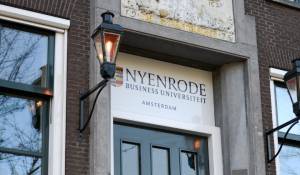Hi there,
I am considering the 4 b-schools MBS, AGSM, HKUST & HKU. I am particularly interested in knowing how the 4 schools are viewed in 1) Australia, 2) Asia (Hong Kong & China), 3) USA & Canada & 4) Europe.
Thanks.
ohvina
MBS vs AGSM vs HKUST vs HKU (x-post in Asia)
Posted Feb 05, 2012 12:30
I am considering the 4 b-schools MBS, AGSM, HKUST & HKU. I am particularly interested in knowing how the 4 schools are viewed in 1) Australia, 2) Asia (Hong Kong & China), 3) USA & Canada & 4) Europe.
Thanks.
ohvina
Posted Feb 08, 2012 19:55
Overall, I'd rate them like this:
1. HKUST
2. AGSM
3. Melbourne
4. HKU
Obviously, AGSM and Melbourne will be viewed more favorably in Australia - and the Hong Kong programs will be better if you want to work in China/HK.
In terms of US and Canada, it's really hard to say. Certain industries and multinationals with alumni from a particular program might view it favorably - but none are going to have the same weight as similarly ranked programs in the West. I'd suggest narrowing your focus to where you want to work after graduation and picking a school based on that.
1. HKUST
2. AGSM
3. Melbourne
4. HKU
Obviously, AGSM and Melbourne will be viewed more favorably in Australia - and the Hong Kong programs will be better if you want to work in China/HK.
In terms of US and Canada, it's really hard to say. Certain industries and multinationals with alumni from a particular program might view it favorably - but none are going to have the same weight as similarly ranked programs in the West. I'd suggest narrowing your focus to where you want to work after graduation and picking a school based on that.
Posted Feb 10, 2012 12:25
True. The rank is quite similar to that in FT / The Economist.
It is the easiest to get into a region where one graduates in. For example, HK/China employers will first look for graduates from HKUST / HKU over AGSM / MBS.
However, being able to work overseas and capturing the best opportunity worldwide allows gradautes to have the most nos. of doors opened to themselves, not only in the short term but also in the long haul. As such, it is considered entering a school which is widely acceptable worldwide will be the best option to me. Of course, one may argue the Ivy League in the States will be the best ticket in this case. However, the right to work/live and availability of financial aid etc currently limit the best choices to the four in the subject line. More comment is welcome.
It is the easiest to get into a region where one graduates in. For example, HK/China employers will first look for graduates from HKUST / HKU over AGSM / MBS.
However, being able to work overseas and capturing the best opportunity worldwide allows gradautes to have the most nos. of doors opened to themselves, not only in the short term but also in the long haul. As such, it is considered entering a school which is widely acceptable worldwide will be the best option to me. Of course, one may argue the Ivy League in the States will be the best ticket in this case. However, the right to work/live and availability of financial aid etc currently limit the best choices to the four in the subject line. More comment is welcome.
Posted Feb 10, 2012 23:05
However, being able to work overseas and capturing the best opportunity worldwide allows gradautes to have the most nos. of doors opened to themselves, not only in the short term but also in the long haul.
True, but international mobility doesn't usually work as expansively as this. This is because even in today's era of globalized business, there are still huge variations in business culture, and those variations, coupled with the lack of a network in a foreign country can severely limit somebody's ability to secure work abroad. This is why the most effective strategy is for students go to a school in a specific region to work in that region. The statistics back this up, even for the schools you're looking at:
A substantial majority of AGSM MBA grads (81%) end up working in Australia, whereas only 41% of them are actually from the country.
Likewise, at HKUST, 88% of grads end up working in Asia.
Of course, one may argue the Ivy League in the States will be the best ticket in this case.
You would think so - but again, the stats say that most grads from ivies end up working in the U.S: only 9% of Harvard grads end up in Asia. 0.2% of Wharton grads end up in Australia.
True, but international mobility doesn't usually work as expansively as this. This is because even in today's era of globalized business, there are still huge variations in business culture, and those variations, coupled with the lack of a network in a foreign country can severely limit somebody's ability to secure work abroad. This is why the most effective strategy is for students go to a school in a specific region to work in that region. The statistics back this up, even for the schools you're looking at:
A substantial majority of AGSM MBA grads (81%) end up working in Australia, whereas only 41% of them are actually from the country.
Likewise, at HKUST, 88% of grads end up working in Asia.
<blockquote>Of course, one may argue the Ivy League in the States will be the best ticket in this case. </blockquote>
You would think so - but again, the stats say that most grads from ivies end up working in the U.S: only 9% of Harvard grads end up in Asia. 0.2% of Wharton grads end up in Australia.
Related Business Schools
Other Related Content
Top 10 MBA Programs in Asia
Top List
Hong Kong, Singapore and more: see the Top 10 MBA Programs in Asia here
Hot Discussions
-
Online MBA
Nov 12, 2024 3,224 26 -
UPF-BSM vs EAE Business School vs UAB, seeking insights over potential business schools in Barcelona, Spain.
Nov 07, 2024 166 12 -
Torn Between Ivey and RSM: What Would You Choose?
Oct 29, 2024 245 12 -
Best School for a JD/MBA Dual Degree?
Nov 03, 2024 3,970 10 -
Kozminski vs SGH
Oct 26, 2024 142 10 -
Question about some Masters- ESCP or EDHEC or Cranfield.
Oct 30, 2024 124 7 -
"Late Bloomer" with average academics/experience, but 720 GMAT and Polyglot
Nov 07, 2024 102 4 -
Time management when pursuing an MBA while working
Oct 31, 2024 76 4




